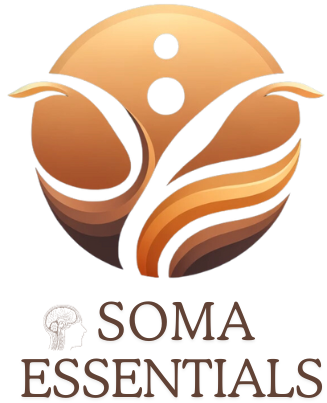Are There Any Potential Downsides Or Challenges To Practicing Body Awareness?
You’re embarking on an engaging journey through the article, “Are there Any Potential Downsides or Challenges to Practicing Body Awareness?” This intriguing read seeks to unveil the pitfalls and hitches that might accompany the practice of body awareness. Wrapped in lucidity and compelling argumentation, it promises to guide you through a labyrinth of perspectives and insights. So sit back, and let the potency and depth of its knowledge readily seep into your consciousness.
Understanding Body Awareness
Body awareness is your brain’s conscious understanding and perception of your physical presence in the environment. It involves your capacity to perceive, sense, and feel the movement and position of your body and its parts. This sense is the culmination of interacting sensory input from within the body and the world around us.
What is Body Awareness?
Being body aware means being tuned in to how your body is moving and feeling. You’re more attuned to sensations like temperatures, pain, or pressure, understanding the ways your body communicates with you, and making adjustments to your actions accordingly. It is akin to ‘listening’ to your body’s silent language – the rhythm of breath, a tightening muscle, a sudden rush of energy – to maintain harmony and balance within your body.
Importance of Body Awareness
Body awareness is the foundation of mindfulness and presence. It not only anchors us in the present moment but also plays a crucial role in movement, coordination, and physical expression. It aids in improving posture, maintaining balance, preventing injuries, and adding efficiency to your movements. Experiencing body awareness can connect you to a deeper sense of physical well-being and support a happier, more contented lifestyle.
Limitations in Body Awareness Cultivation
Body awareness cultivation is a practice that requires time, patience, and consistency. Although vitally important, cultivating body awareness has its limitations.
Time-Consuming Nature of Body Awareness Practice
The process of developing body awareness doesn’t happen overnight. It demands commitment, time, patience, and consistent practice. By no means is it a quick fix; just as learning any new skill, it requires you to invest time in practicing and understanding the subtle cues of your body.
Challenge of Consistency in Practice
Cultivating body awareness demands consistency in practice, which can be a daunting task. Daily life distractions, pressing duties, or lack of inspiration may be hurdles in maintaining a regular practice. Consistency is the key to accruing the benefits of body awareness.

Physical Challenges of Body Awareness
While practice can cultivate body awareness, various physical challenges might make this course difficult.
Potential Fatigue
As you begin to pay more attention to your body’s subtleties, you might find yourself experiencing fatigue. This exhaustion is due to the continuous effort exerted in focusing on the body’s various sensory inputs and in attempting to understand these cues.
Increased Sensitivity to Pain
heightened body awareness can also lead to increased sensitivity to physical discomfort or pain. As you begin to perceive more subtle body sensations, you might also become more aware of minor aches and pains that previously went unnoticed.
Inability to Focus due to Health Conditions
Certain health conditions may hinder your ability to focus on body cues. Chronic pain, for instance, can make it difficult to focus, while other health conditions might cause sensory overload or confusion.
Psychological Hurdles in Body Awareness
Body awareness can also bring some psychological hurdles alongside the physical challenges.
Perceived Slow Progress
Because body awareness is a subtle and often slow process, progress can feel frustratingly slow. This perception can lead to disappointment or decreased motivation to continue the practice.
Frustration and Handling Expectations
As with any skill, cultivating body awareness can be a trial-and-error process. It can be frustrating when your body doesn’t respond as expected or when anticipated results don’t manifest themselves quickly.
Difficulty in Quieting the Mind
Body awareness requires a still and focused mind. However, quieting the mind can be a profound challenge. Intrusive thoughts, worries, or mental restlessness can make it difficult to practice body awareness effectively.

Misinterpretation of Body Signals
Understanding body signals is an integral part of body awareness. However, misinterpretation often occurs.
Confusing Body Sensations
Sensations in the body, especially those of discomfort, pain, or tension, can sometimes be difficult to interpret. False alarms, where the body reacts to a perceived threat that doesn’t exist, can be a possible outcome of misinterpretation.
Mistaking Normal Body Functions for Issues
As body awareness increases, it’s possible to become hyper-aware to the point where normal body functions might be mistaken for physiological problems. This overinterpretation can lead to unnecessary worry or fear.
Potential for Overemphasis on Body Awareness
While body awareness is beneficial, overemphasis can pose certain challenges.
Ignoring Other Aspects of Wellness
In the process of focusing heavily on body awareness, you might ignore other crucial aspects of wellness. Mental health, nutrition, social connections, and spirituality also need equal attention for holistic well-being.
Possibility of Becoming Obsessive
A potential pitfall of heightened body awareness is the risk of becoming overly preoccupied or even obsessive about your physical sensations and body cues, which can be an exhausting and counterproductive endeavor.
Unwanted Emotional Recollections
Due to the interconnection between the body and mind, body awareness can sometimes unearth unexpected emotional challenges.
Reliving Past Traumas
Cultivating body awareness might stir up past traumas or painful memories stored in the body, leading to discomfort or distress. It might also bring forth suppressed feelings, leading to emotional unease.
Uncovering Suppressed Feelings
Often, somatic experiences related to suppressed emotions may surface during body awareness practices. It is integral to approach these surfaced emotions with care and ideally with the assistance of a professional, as they could otherwise potentially lead to emotional distress.
Effect on Social Interactions
Body awareness practices can inadvertently affect your social interactions.
Potential Isolation from Over-Introspection
Focusing too much on your inner experience can sometimes disconnect you from the world around you. It may even lead to potential isolation as you dive deeper into introspection, causing a withdrawal from social interactions.
Misunderstanding from Others in Social Settings
In our fast-paced society, the practice of body awareness might seem strange or alien to others, leading to misunderstandings or misconceptions in social settings.
Understanding the Balance in Body Awareness
Although it is essential to understand and practice body awareness, it is also crucial to strike a balance.
Finding the Middle Ground
Just like anything in life, body awareness too requires balance. It’s important not to overly focus on the physical sensations while ignoring other vital elements of your life. Finding a middle ground where you can be attuned to your body without being obsessed is a big part of this practice.
Addressing the Potential Challenges
Awareness of the potential challenges of body awareness practices is the first step towards addressing them. It is crucial to approach this practice with self-compassion, patience, and an open mind.
Tips to Overcome Challenges in Practicing Body Awareness
Overcoming these challenges requires strategic planning.
Proper Guidance and Expert Consultation
Seeking the guidance of experts in the field of body awareness can help you navigate your personal challenges. They can provide you with suitable tools and exercises to cultivate body awareness, all the while helping you maintain balance and manage expectations.
Adapting Body Awareness into Daily Routine
Rather than setting aside large chunks of time, try weaving body awareness practices into your daily routines. A quick body scan while waiting for your coffee or a mindful walk can make this practice less overwhelming and more manageable.
Coping Mechanisms for Emotional Challenges
If practicing body awareness brings up emotional discomfort, it’s important to have coping mechanisms or therapeutic support in place. Breathwork, mindfulness practices, or journaling can be helpful in managing such emotional responses.
In conclusion, while body awareness practices come with their own set of challenges, understanding these potential hurdles can provide insights for a more balanced and effective approach. It’s about establishing a loving dialogue with your body – one that enhances your physical, emotional, and mental well-being.

